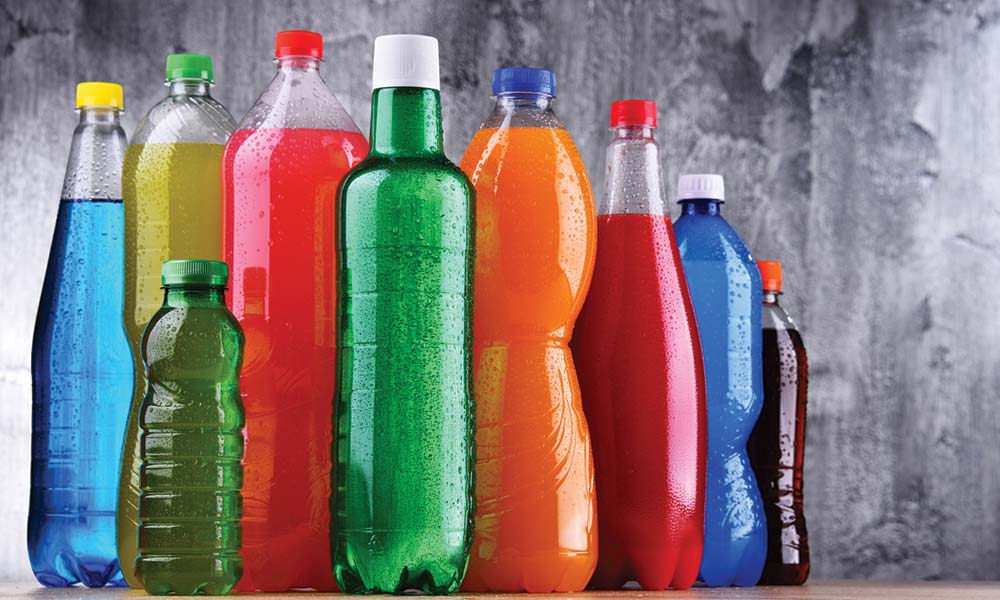Dangers and Risks of High-Fructose Corn Syrup

Nearly every patient has heard of high-fructose corn syrup, and those who read social media or watch the news are likely familiar with the fact that its overconsumption is linked to serious complications such as obesity and type 2 diabetes. However, recent evidence and studies may point to too much high-fructose corn syrup being correlated with other problems, such as colon cancer. Read on to learn about how obesity ties in with the prevalence of colorectal cancer, why you should be worried about high-fructose corn syrup, and other risk factors associated with colon cancer.
High-Fructose Corn Syrup Dangers
There is sugar, and there is high-fructose corn syrup. Both are sweeteners. Both are found in soft drinks, candies, and other foods. Neither are good for you. Eating too much of either can lead to diabetes and obesity. However, one of the main problems with high-fructose corn syrup is the way the body breaks it down (or rather, doesn’t). It is true that table sugar also breaks down into fructose, which can be difficult for the body to convert into fuel, but the makeup of table sugar is 50 percent fructose and 50 percent glucose, while high-fructose corn syrup (HFCS) has 55 percent fructose. While too much sugar can be bad for you as well because of the fructose level, the extra five percent in HFCS can contribute to serious health issues, such as diabetes. One of the main concerns is that this excess fructose immediately converts into fat. There’s nothing beneficial about it for your body’s sake, unlike small amounts of table sugar or other sugars and carbs, like rice, potatoes, and fruit.
Colon Cancer Risk Factors
Scientists are still trying to figure out all of the risk factors that contribute to colon cancer. A high number of cases in recent years concerning younger patients have doctors and researchers perplexed. These cases even prompted the American Cancer Society to drop colon cancer screening guidelines from age 50 to age 45 in 2018 for both men and women. However, some risk factors have been well proven over time. Family history is a concern, and if you have a first-degree relative who has had polyps or colorectal cancer, or even a history of inflammatory bowel disease, you should let your doctor know. This may warrant a screening for you that’s even earlier than age 45. Those with inherited syndromes like Lynch syndrome also have a higher risk, as well as those of African American or Ashkenazi Jewish descent.
While these risks are genetic, there are behavioral modifications that patients can make in order to lower their risks. Those who smoke and those who drink heavily have a greater chance of colon cancer development. Also, red and processed meat consumption has been linked with colon cancer, especially in younger women. However, one of the most significant factors when it comes to colon cancer is obesity. Patients are advised to keep their body mass index (BMI) within normal ranges and to exercise as often as possible (three to five times per week). Those with a BMI in the overweight to obese range who lead a sedentary lifestyle have a much greater risk of developing colon cancer. If you’re having trouble quitting smoking or drinking, or are having difficulty losing weight or keeping it off, your physician is your strongest source of help.
Colon Cancer and High-Fructose Corn Syrup
While there is little doubt that obesity is strongly linked to colon cancer cases, there has been no definitive study that correlates colon cancer and corn syrup directly. However, a recent study published in the journal Science found that mice given 12 ounces of liquid made with HFCS per day accelerated their tumor growth and their likelihood of developing colon cancer. While more research is needed on human subjects, this is the first study of its kind to develop a direct correlation with sugary drinks and colon cancer development. Previous studies have only gone so far as to link high-fructose corn syrup with obesity, and obesity to colon cancer. At the very least, this is a good reminder that sugar-laden drinks made with high fructose corn syrup are bad for your health for a number of reasons.
If you need more information about colon cancer risks, or would like to schedule a colon cancer screening or consultation, book an appointment at Gastroenterology Consultants of Savannah today. We offer five Georgia locations and one South Carolina location for complete convenience when it comes to your care.